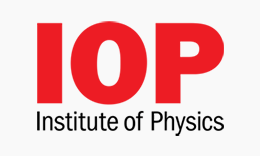Astrophysics Code F510 Attend an Open Day Attend an Open Day
Apply NowKey Facts
F510-
UCAS Tariff
120 - 112
-
Course duration
3 years
Available for September start 2025
Further details on entry requirements
Apply NowAstrophysics (F510) at Aberystwyth University incorporates the broad disciplines of Astronomy, including: Cosmology and Galactic Astronomy, the Solar System, Gas Giants and Terrestrial Worlds, Red Giants, White Dwarfs, Neutron Stars, Quasars and more.
This allows you to cover a broad area of learning and then specialise later in your career. With foundations in the key areas of Physics and Astronomy, taught in a supportive environment, you will also develop the transferable skills required by employers for education, business and industry.
Course Overview
Modules September start - 2025
Please note: The modules listed below are those currently intended for delivery during the next academic year and may be subject to change. They are included here to give an indication of how the course is structured.
| Module Name | Module Code | Credit Value |
|---|---|---|
| Algebra and Differential Equations * | PH16210 | 10 |
| Astronomy | PH18010 | 10 |
| Calculus * | MP10610 | 10 |
| Dynamics, Waves and Heat * | PH10020 | 20 |
| Electricity, Magnetism and Matter * | PH11120 | 20 |
| Further Algebra and Calculus * | MP11010 | 10 |
| Laboratory Techniques for Experimental Physicists and Engineers (20 Credits) * | PH15720 | 20 |
| Modern Physics | PH14310 | 10 |
| Physics Career Planning and Skills Development * | PH12910 | 10 |
| Module Name | Module Code | Credit Value |
|---|---|---|
| Electricity and Magnetism * | PH22510 | 10 |
| Mathematical Physics * | PM26020 | 20 |
| Numerical Techniques for Physicists | PH26620 | 20 |
| Optics | PH22010 | 10 |
| Practical Research Skills * | PH25720 | 20 |
| Principles of Quantum Mechanics | PH23010 | 10 |
| Stars and Planets | PH28620 | 20 |
| Thermodynamics | PH21510 | 10 |
| Module Name | Module Code | Credit Value |
|---|---|---|
| Astrophysics I: Physics of the Sun | PH39620 | 20 |
| Astrophysics II: Galaxies, General Relativity and Cosmology | PH39820 | 20 |
| Concepts in Condensed Matter Physics | PH32410 | 10 |
| Particles, Quanta and Fields | PH33020 | 20 |
| Project (40 Credits) | PH37540 | 40 |
* Also available partially or entirely through the medium of Welsh
Careers
Teaching & Learning
Student Testimonials
Typical Entry Requirements
UCAS Tariff 120 - 112
A Levels BBB-BBC to include B in Physics and B in Mathematics
GCSE requirements (minimum grade C/4):
English or Welsh and Mathematics
BTEC National Diploma:
DDM-DMM with B in A level Physics and B in Mathematics
International Baccalaureate:
30-28 with 5 points in Physics and Mathematics at Higher Level
European Baccalaureate:
75%-65% overall with 7 in Physics and Mathematics
English Language Requirements:
See our Undergraduate English Language Requirements for this course. Pre-sessional English Programmes are also available for students who do not meet our English Language Requirements.
Country Specific Entry Requirements:
International students whose qualification is not listed on this page, can check our Country Specific Entry Requirements for further information.
The University welcomes undergraduate applications from students studying the Access to Higher Education Diploma or T-level qualifications, provided that relevant subject content and learning outcomes are met. We are not able to accept Access to Higher Education Diplomas or T-levels as a general qualification for every undergraduate degree course.
Our inclusive admissions policy values breadth as well as depth of study. Applicants are selected on their own individual merits and offers can vary. If you would like to check the eligibility of your qualifications before submitting an application, please contact the Undergraduate Admissions Office for advice and guidance.

